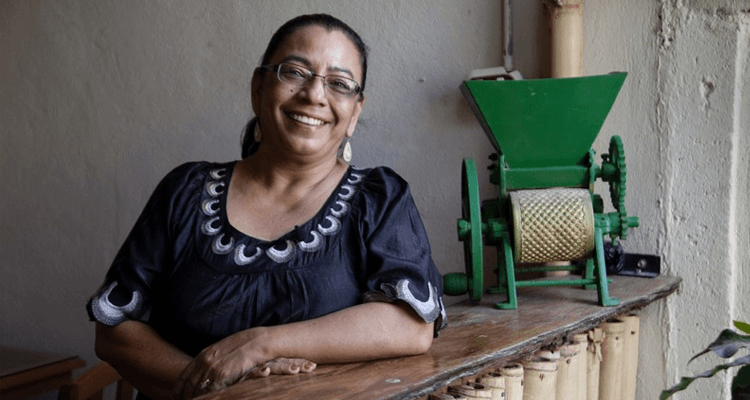SOPPEXCCA was formed in 1997 by a group of 62 farmers to improve the lives of its members and their communities to build a sustainable organisation.
About SOPPEXCCA
UCA SOPPEXCCA is a union of 18 co-operatives located in the department of Jinotega in northern Nicaragua where 60% of the country’s coffee is produced.
Background and structure
SOPPEXCCA was formed following the collapse though financial mismanagement of its predecessor and has put in place a robust system of audits and regular general assemblies to ensure transparency and accountability to its members.
The organisation’s values are based on sustainable production and protection of the environment. It has set up a youth movement to integrate young people into the organisation and promote education, positive values, gender equality and cultural and environmental awareness. It also runs school programmes to educate young people in agriculture and ecology and prepare them for careers in coffee production.
SOPPEXCCA has grown to 650 members, 210 of them women (32%). They produce around 825 tonnes of coffee a year on very small plots of land. All coffee is shade grown and 30% is certified organic.
The organisation is facing serious challenges from disease and climate change: 30%-40% of coffee production has been affected by la roya, a leaf rust fungal disease reaching epidemic proportions in the region. Impacts of climate change include unreliable and unpredictable rains and increased incidence of pests. Coffee can no longer be grown in some areas, forcing farmers to switch to cocoa and other cash crops.
Fairtrade
Fairtrade has opened doors for us and kept us alive as small producers. You can see the people who are just selling to the conventional market and they have completely different lives to the ones we have, so thanks to Fairtrade we are receiving a lot of help in covering our needs.
Juan Andes
SOPPEXCCA took the decision to become Fairtrade certified because Fairtrade standards and principles complemented its own values and was an opportunity to improve members’ lives and develop the rural economy.
Fairtrade International has provided training on market conditions and market strategies and helped SOPPEXCCA to access new markets. This has fostered the development of long-term partnerships with Fairtrade buyers who visit farms and understand the problems faced by farmers and vice versa. The additional income from Fairtrade has enabled members to buy more land, increase coffee productivity and quality, and increase their incomes.
Fairtrade Premium
Fairtrade sales are based on the Fairtrade Minimum Price of US$1.40 a pound, or the market price if higher, and a premium of 30 cents a pound for organic coffee. Global oversupply has seen international market prices slump by 60% over the last two years, so Fairtrade gives farmers some financial stability and the confidence to budget for farm and household expenses.
The organisation also receives the Fairtrade Premium of 20 cents a pound to invest in business development and community improvements. A quarter of the premium must be invested in productivity and quality improvement projects to increase incomes and improve competitiveness with other coffees. A wide range of projects have been implemented:
- Extensive coffee tree replanting programme to counter the impact of leaf rust disease and increase productivity.
- Construction of a dry processing plant to prepare coffee for export, and increase organisation’s income by selling the services to other organisations.
- Quality control: improved wet processing and sun drying techniques, construction of cupping labs and training of cuppers (and farmers) to ensure coffee quality meets market requirements.
- Capacity building – training to improve farm management, accounts and record keeping.
- Improve organisational management and financial transparency – meetings are regular and minuted, decisions are taken democratically and communicated to members along with information on Fairtrade and market prices and details of Fairtrade Premium use.
- Projects to improve food security and reduce dependency on coffee by diversifying production into fruit (bananas, oranges, mangoes, guava, plums), honey, yams, cocoa for consumption and local sales.
- Environmental programme includes training in the correct use of agro-chemicals, reforestation, and protection of water sources.
Other Premium projects
Gender programme to educate youngsters about equality.
‘You will not find another coffee in the market which meets Fairtrade’s criteria of respecting the lives of the people who produce it. This respect has to do with the minimum price and the social premium which, in our case, has even saved lives because we have implemented a programme for the prevention of cervical cancer, and thanks to which 5,000 women from this region have been screened. No other certification does that’.
